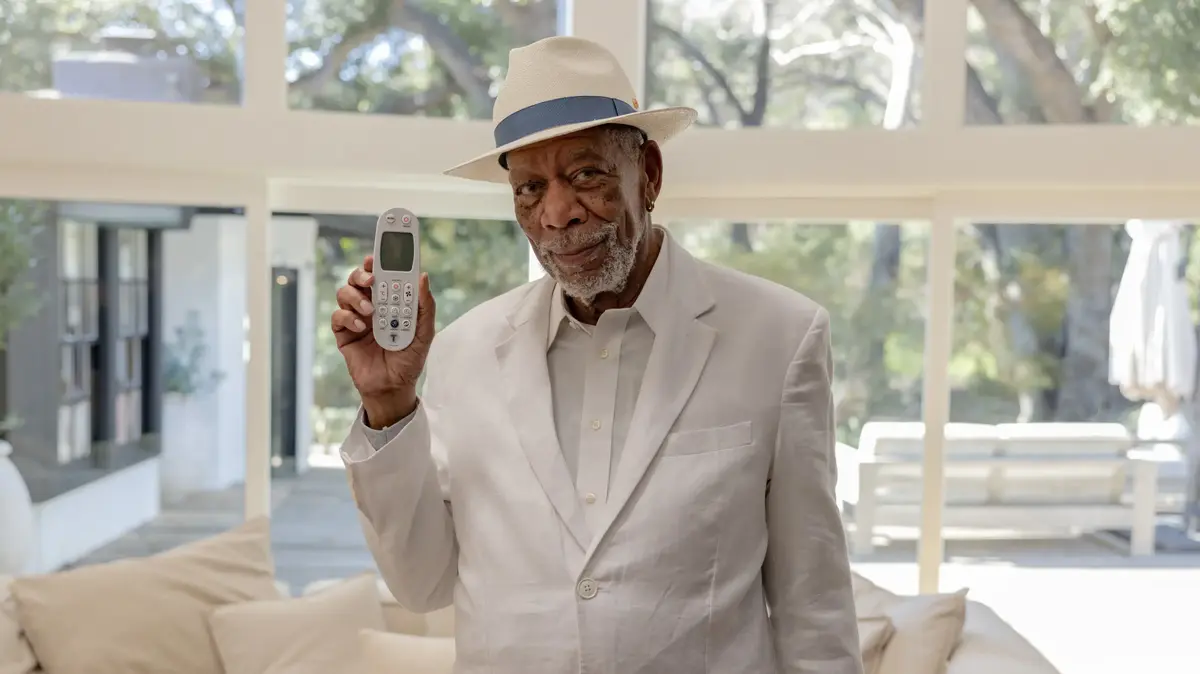Many people talk about the benefits of daylight saving time • How did the idea of moving the clock start and whether it is precisely because of the corona that the abolition of winter time should be seriously considered?
• Examine yourself
Switching to winter time
Photography:
GettyImages
On the night between Saturday and Sunday we all move for one long hour towards winter time.
Yes, once every six months we move in time.
Many talk about the benefits of daylight saving time, with the most notable being the acceleration of the trading economy, the increase in labor productivity and the reduction of mental depression created by the lack of daylight hours.
And if there are so many benefits, then who even needs the winter watch?
Should the corona period and the economic and mental crisis it has caused make us seriously think about abolishing winter time and introducing a perpetual daylight saving time?
There were some people who conceived daylight saving time, based on the principle of utilizing daylight hours.
Before that, there was only one clock, and no thought was given to the idea of moving the hands, which we now take for granted.
The source for the idea came from Benjamin Franklin, who was the US ambassador to France and in 1784 suggested that the French get up at sunrise and go to bed early, thus saving about 29 million kilograms of wax for making candles.
In 1895, George Hudson from New Zealand increased the do and thought for the first time of moving the hands two hours forward.
10 years later, the British William Wilt proposed a similar idea - but the bill passed on the subject fell in the House of Commons.
From "time of war" to chaos and indecision
It was World War I that "implemented" the idea.
Germany wanted to save fuel for the war effort, so decided to extend the hours of light, in order to spend less resources on lighting.
More and more countries have moved over time to daylight saving time, for the same purpose.
In World War II the idea was adopted again, for exactly the same reason.
For example, in the United States, daylight saving time was non-stop from 1942-1945 - and was called "war time" by Roosevelt!
After the two wars, there were countries that adopted the clock permanently, there were those who abolished the initiative, there were those who adopted and then abolished, and again returned and even there were countries that were divided: that is, in some parts of the country daylight saving time was introduced.
Israel is a prime example of the mess created around the clock.
During the British Mandate, daylight saving time was introduced in the country.
With the establishment of the state, the practice was practiced in Israel, but was abolished in 1958. In 1974, it was decided to introduce daylight saving time again, but after only two years it was abolished again by the then Minister of the Interior, Yosef Burg.
After all the sagas of cancellation and return, in 1980 the High Court ruled that daylight saving time should be introduced in Israel, the duration of which will be determined by the Minister of the Interior.
Quite a few countries have decided in recent years to abolish winter time.
The EU decided about a year and a half ago to abolish the clock movement, so that every country that is a member of the EU will decide during 2021 whether to stay in daylight saving time or in winter time.
However, this is not a simple decision at all - in 2011 Russia abolished winter time, but in 2014 the clock was moved again so that daylight saving time was abolished permanently.
Even in the late 1960s winter time was abolished in Britain and Ireland, but after a public protest it was finally adopted again.
Who said you have to move the clock?
There are some advantages to daylight saving time and stopping the clock, as well as some disadvantages - let's take a closer look at them:
Accelerating trade and raising labor productivity -
Due to overtime, people are away from home for longer, buying more and boosting trade cycles and the economy.
Precisely in the period of the corona economic crisis, it is worth thinking about it more in depth, while we want to incentivize the economy that has suffered a severe blow.
We just left a locksmith and we are already shortening another hour a day?
On the other hand, it is important to say that we spend more personally, so perhaps for the individual and his bank account the matter is less beneficial.
Also, adjusting the clock to working hours maximizes productivity.
According to estimates by the Ministry of Finance, the Manufacturers' Association and the Association of Chambers of Commerce, the summer time in 2019, which lasted seven months, contributed about NIS 350 million to the economy.
Daylight saving time seems to be not bad results at all financially.
And if so, why not all year?
And especially in a period of such an acute economic crisis.
Mental state -
Suffering from a more depressed mood in winter?
There is a reason for this.
Many studies have shown that there is a connection between light and a person's mood, which is adversely affected by prolonged hours of darkness and little exposure to sunlight.
Some people are even more affected and suffer from a phenomenon called seasonal depression or winter depression.
Moreover, studies have shown that beyond daylight saving time you reduce the suicide rate.
It was further argued that during the transition period between the clocks there is actually an increase in suicides.
Here, too, we need to light a red light, especially in light of the recent period - yes, again the corona, and this time the mental crisis and that it causes many of us due to prolonged stay in homes and a sense of uncertainty.
It is worth discussing whether winter time will cause further depression that can be prevented, and to what extent can daylight saving time at least partially reduce mood?
Resource saving - In the
past it has been argued that running daylight saving time saves energy due to overtime.
Presumably this claim was true in the past when it came mainly to lighting.
But today lighting does not occupy a major volume in energy consumption.
The use of air conditioners that did not exist in the past and other technologies that have evolved over the years, is usually unrelated to whether there is light or darkness outside.
Hence it is difficult to prove how much the extra light hour actually saves energy, which makes this argument less relevant today.
Road accidents - the
more driving time is during daylight hours, the lower the number of road accidents.
In winter many go out of work during hours that are already getting dark, and the congestion on the roads is great, which probably increases the number of accidents.
It was also found that during the transition periods between the clocks there is an increase in the number of accidents, due to a lack of sleep of the drivers.
Quality of life -
Daylight saving time allows more hours of leisure in the light, more time for recreation, friends, family.
At the height of winter it will allow many of us to get out of work even in the light.
But here also lies the most notable disadvantage of introducing daylight saving time even in winter.
No matter how we turn it around - there are still fewer hours of light in the winter.
This means that in order for us to enjoy another hour of light before sunset, most of us will have to get up in the dark.
The sunrise will move around 07:30.
It's harder to get up in the morning without the sunlight shining through the shutters.
Try to water the children when it is still dark outside - not easy at all.
Here, too, lies the thing that can lead to the abolition of the other benefits.
The number of road accidents may still be higher in the winter, they will simply be more common in the morning, when the road is crowded with cars when it is still dark.
As for the state of mind, getting up in the dark can be quite depressing.
And maybe our whole lifestyle will change and we will go to work later?
But that means we will probably also come back from it later and all the benefit we wanted to create will be canceled.
And yet - there are countries where the sun rises quite late, even in summer, and people live with it quite peacefully.
Who said a sunset that starts at 4:30 pm is better?
This is at the end a question of preferences.
Religious controversy
A public opinion poll conducted around the proposal to extend daylight saving time showed that 50% of respondents supported extending daylight saving time, 33% supported leaving the period as it is, and 13% of respondents sought to shorten it.
Finally, daylight saving time has indeed been extended and starting in 2013, the clock is being moved at the end of October and not at the end of September.
Most of the public is indeed satisfied, but it is important to say that the controversy in the country around moving the clock concerns, as in many other cases, religion and the rift between secular and religious.
Only 13% of the ultra-Orthodox supported the same survey of positions in the extension of daylight saving time, the religious were divided.
Yes, here too the debate is religious and rests on the claim that daylight saving time harms the lifestyle of the observant person.
how?
The time of sunrise affects the time of the morning prayer, which must begin after the hot hawk.
Due to daylight saving time, the hot hawk hour is delayed, so some claim that worshipers have difficulty getting to work on time. This is also the main argument for not canceling winter time - if sunrise is only at 7:30, it will probably be very difficult for the worshipers.
Another argument revolved around the claim that daylight saving time encourages the desecration of Shabbat.
The claim is that summer Saturdays depart after 20:00 while various services, such as public transportation for example, start operating before the end of Shabbat and thus the desecration of Shabbat increases.
Other reasons relate to difficulty in fasting, the practice of forgiveness and more.
But these arguments relate more to the summer months, with the day longer and less to the winter.
Do you control time?
So what is the right thing to do?
Maybe just give it a try.
No one really knows whether canceling the winter watch will have a positive or negative effect.
Will people be happy with the change or not?
Perhaps precisely during the corona period and the economic crisis it brought and will continue to follow, it is worth seeing whether the abolition of the winter clock is beneficial to the economy.
and if not?
As we have seen, there are countries that have abolished the clock, and then put it back so that nothing is irreversible, and it may be worthwhile to see the effect of the change and especially not to take things for granted.
Daylight saving time and daylight saving time are human inventions, and we may not be able to control them completely in time, but we can control the clock hands.















/cloudfront-eu-central-1.images.arcpublishing.com/prisa/EXJQILQR5QI7OMVRTERD7AEZAU.jpg)